Colorado is a paradise for fruit growers! With its temperate climate and diverse soil types, growing delicious fruits in the Centennial State requires knowing which ones to pick. There’s certainly no shortage of choices – from juicy peaches to tasty cherries, the Colorado soil yields a bounty of delectable fruit! That’s why this comprehensive Colorado Fruit-Growers Guide was created as your one-stop shop for picking the best fruits to grow in the state. So, if you’re looking to make your garden bloom with succulent produce this season, look no further than these top picks for delicious fruits that thrive in Colorado.
12 Best Fruit Trees to Grow in Colorado
Colorado may not have the balmy Mediterranean climate of California or Florida, but there are still plenty of fruit trees that will thrive in the Centennial State. Whether you’re growing for beauty, shade, or food, here are twelve of the best fruit trees to grow in Colorado.
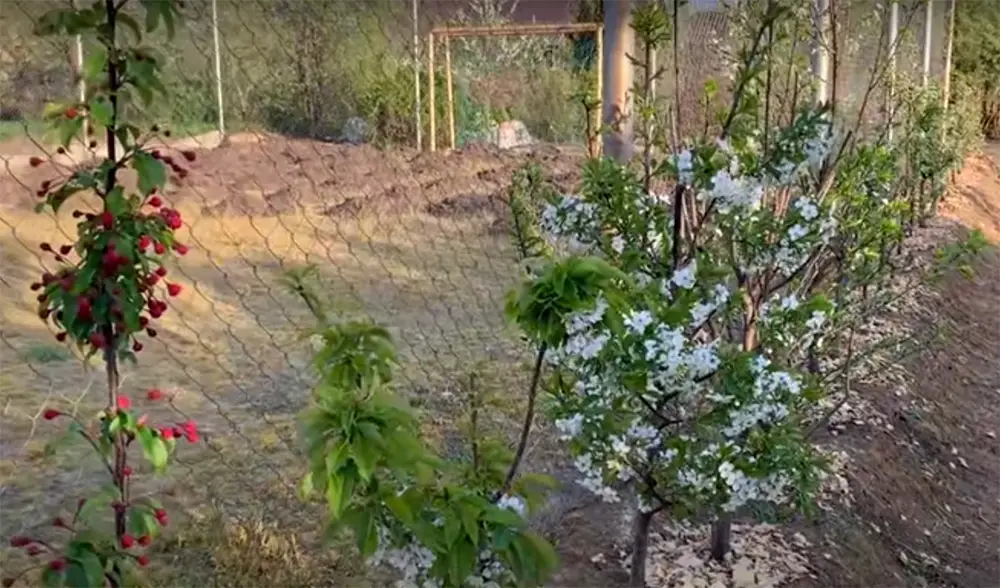
- Apple Trees – The most popular tree for Colorado gardeners, apples are compact and well-suited for smaller Colorado yards. They’re also easy to care for and can produce fruit for up to 20 years.
- Asian Pear Trees – These tasty pears tend to be larger than their European counterparts, with a juicy but firm texture. They’re more cold hardy than other pears, making them ideal for Colorado’s climate.
- Apricot Trees – While apricots can be tricky to grow in Colorado, they’re worth the effort. They’re hardy and produce an abundance of sweet-tart fruits that make excellent preserves and pies.
- Cherry Trees – Sweet cherries are a favorite of Colorado gardeners. They’re relatively easy to grow and can produce an abundance of juicy fruits for up to 25 years.
- Peach Trees – Peaches love the warm summers in Colorado, and these trees can provide an abundant harvest of sweet yellow fruit each year.
- Plum Trees – Plums are a great choice for Colorado since they can handle cold winters and hot summers. Plus, they produce sweet juicy fruits that can be used in jams and jellies.
- Fig Trees – Figs are surprisingly easy to grow in Colorado’s climate, with little maintenance and no need for protection during winter. They’ll reward you with a delicious crop of figs year after year.
- Nectarine Trees – These sweet fruits are a little more delicate than peaches, but can still thrive in Colorado’s climate. The fuzzy skin makes them less appealing to pests, too!
- Mulberry Trees – While mulberries aren’t as popular as some other fruits, they can be a great addition to your Colorado yard. They’re hardy and produce a delicious crop of sweet berries that can be used in jams or eaten fresh.
- Pomegranate Trees – Pomegranates are surprisingly easy to grow in Colorado’s climate, with little maintenance and no need for protection during winter. Plus, they reward you with a delicious crop of ruby red fruits each year.
- Quince Trees – Quinces are a classic autumn fruit, with a tart flavor that’s perfect for pies and preserves. They’re also very cold hardy, making them ideal for Colorado’s climate.
- Pawpaw Trees – These exotic fruits are native to North America and can produce an abundance of sweet, custardy fruits in Colorado. They’re also surprisingly cold and hardy and can survive even the harshest winters in the Rockies.
No matter what type of fruit tree you decide to grow in Colorado, there are plenty of options that can thrive in the Centennial State’s climate. With a little bit of knowledge and care, your trees can produce big harvests of delicious fruit for years to come. Plus, you don’t have to worry about the hustle and bustle of grocery shopping, since it will all be right in your backyard! Planting a variety of different types of fruit trees can also give you an array of colors and flavors throughout the year – from sweet cherries in the summer months to tart apples in the fall [1].
Can Fruit Trees Grow in Colorado?
Yes, fruit trees can grow in Colorado. The state has a generally dry climate and winters that are cold enough for many types of fruit to ripen and bear fruit. The growing season is long enough for an impressive variety of fruits to be grown here, including apples, peaches, cherries, apricots, pears, plums, and nectarines.
The soil in Colorado is generally dry and rocky. To help your fruit trees thrive, be sure to add plenty of organic matter to the soil before planting. You may also need to supplement with additional irrigation or mulching to ensure a healthy growing environment for your trees.
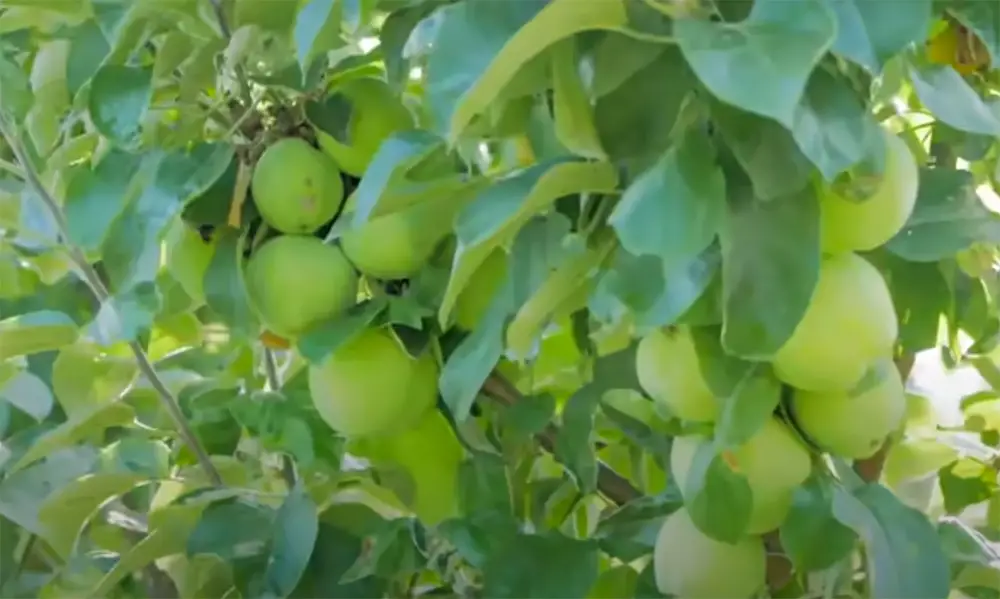
Fruit tree care in Colorado is fairly straightforward, but it does require regular maintenance. Pruning and training your trees properly can help them produce bigger and better harvests. Keep an eye out for pests and diseases that may affect your trees, such as apple scabs or spider mites, and take steps to prevent them from taking hold. Finally, be sure to harvest your fruit at the peak of ripeness for the best flavor.
What Fruit Trees Grow Well in Colorado?
Bartlett Pear (Pyrus x ‘Bartlett’)
The Bartlett pear, scientifically known as Pyrus communis, is a highly sought-after fruit tree variety that thrives in the diverse climate of Colorado. With its adaptability and hardiness, it is no wonder why it has become a popular choice among gardeners and fruit enthusiasts in the region.
One of the remarkable characteristics of the Bartlett pear tree is its extended ripening period, which ensures a prolonged harvest season. This gives growers ample time to enjoy the succulent, juicy, and aromatic white pears that it produces. Whether eaten fresh, incorporated into culinary delights, or utilized for canning and preserving, these versatile fruits never fail to delight the taste buds.
When it comes to ideal growing conditions, the Bartlett pear tree prefers full sun exposure to maximize its fruit production potential. However, it also exhibits a remarkable tolerance for partial shade, making it a flexible option for various garden settings. To ensure optimal growth and productivity, it is advisable to plant it in moist, well-drained soil that provides a favorable environment for its root system to thrive.
In terms of maintenance, regular pruning is recommended to maintain the tree’s shape and promote better airflow and light penetration. This helps prevent the occurrence of diseases and ensures the overall health and vitality of the Bartlett pear tree.
Apple Trees (Malus spp.)
Apple trees are another favorite of Colorado gardeners. They can take a variety of climates, from colder areas to warmer regions. Choose from many varieties such as Honeycrisp, Granny Smith, and Fuji apples that will do well in your area. Apple trees need full sun and prefer well-drained soil.
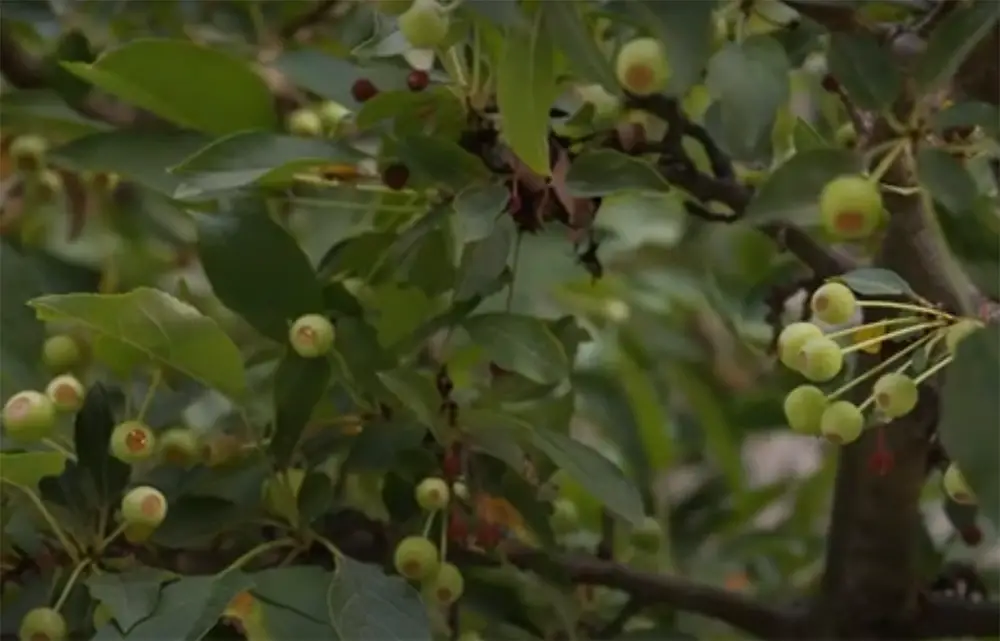
In terms of maintenance, proper watering is essential for apple trees to produce healthy fruits. Make sure to water the tree deeply after planting and then regulate the frequency according to its needs throughout the season. Additionally, mulching helps retain moisture levels in the soil and prevents weeds from growing around it. Also, fertilizing during springtime is recommended to give a boost of nutrients and ensure proper growth.
Summercrisp Pear (Pyrus ‘Summercrisp’)
Summercrisp pear is another excellent choice for Colorado gardeners. It produces large, sweet pears with a crisp texture and delicious flavor. The tree is hardy and self-fertile, making it easy to grow and maintain in the region.
Similar to other pear varieties, Summercrisp prefers full sun exposure to maximize its crop production potential. It requires moist, well-drained soil to ensure optimal development of its root system. When it comes to irrigation, water the tree deeply and regularly during dry spells but pay attention not to overwater.
Mulching is highly recommended for Summercrisp pear trees to retain moisture levels in the soil and keep roots cooler during warmer months. Fertilizing with a balanced fertilizer during springtime also helps promote healthy growth and abundant harvests. Finally, pruning is necessary to maintain the desired shape of the tree and encourage better airflow and light penetration which helps prevent disease build-up.
Bing Sweet Cherry (Prunus avium ‘Bing’)
The Bing sweet cherry is an excellent choice for Colorado gardeners who want to enjoy the sweetness and juiciness of this delicious fruit. This hardy tree species thrives in diverse climates, making it an ideal pick for gardeners in the region.
When it comes to growing conditions, the Bing sweet cherry tree prefers full sun exposure and moist, well-drained soil for optimal growth. For irrigation, water the tree deeply and regularly to ensure that its needs are met throughout the season. Additionally, mulching helps retain moisture levels in the soil and also prevents weeds from growing around it.
To promote healthy growth, it is advisable to fertilize trees during springtime, providing them with an essential nutrient boost. Additionally, regular pruning is crucial for maintaining the desired shape and size of the tree, while also encouraging improved airflow and light penetration. For optimal results, pruning should be done in late winter or early spring when the Bing sweet cherry tree is dormant.
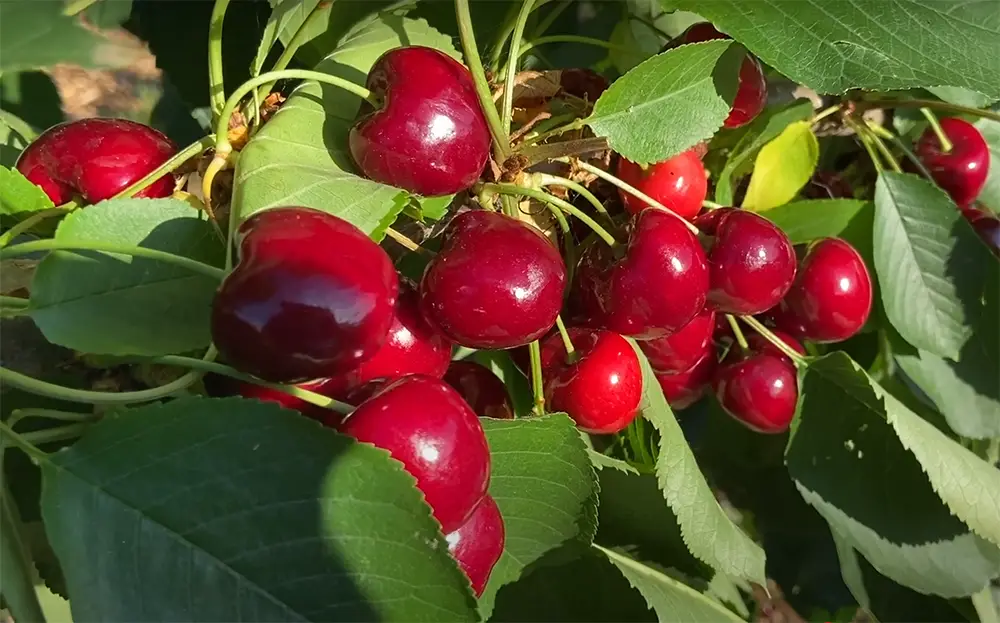
Montmorency Cherry (Prunus ‘Montmorency’)
The Montmorency cherry is one of the most popular varieties sought after by Colorado fruit enthusiasts. It produces large, red-colored sweet cherries that are simply delectable and perfect for eating fresh or using in culinary dishes.
Similar to other cherry trees, Montmorency requires full sun exposure and moist, well-drained soil for optimal growth and productivity. For irrigation, water the tree deeply and regularly during dry spells to meet its moisture needs throughout the season. Mulching helps retain moisture levels in the soil and prevents weeds from growing around it.
Fertilizing with a balanced fertilizer during springtime is recommended to give a boost of nutrients and ensure proper growth. Finally, pruning should be done regularly to maintain the desired shape and size of the tree while promoting better airflow and light penetration. Prune during late winter or early spring when the Montmorency cherry tree is dormant for best results.
Honeycrisp Apple (Malus x ‘MN 1711’)
The Honeycrisp apple is a highly sought-after variety for Colorado gardeners. It produces crisp, juicy apples with a sweet-tart flavor that makes it an ideal snack or ingredient in various recipes.
For ideal growing conditions, the Honeycrisp apple tree prefers full sun exposure and moist, well-drained soil. For irrigation, water the tree deeply and regularly during dry spells to meet its moisture needs throughout the season. Mulching helps retain moisture levels in the soil and prevents weeds from growing around it.
During the spring season, it is recommended to fertilize using a balanced fertilizer to provide essential nutrients and facilitate optimal growth. Additionally, regular pruning is necessary to maintain the desired shape and size of the tree, while also promoting improved airflow and light penetration. For optimal outcomes, it is best to prune the Honeycrisp apple tree during late winter or early spring when it is in a dormant state.
Additionally, thinning out fruits after flowering may be necessary to ensure that each fruit can reach its full size and ripeness. This helps promote a higher quality harvest since too many fruits can cause the individual fruits to be smaller and less sweet.
Fuji Apple (Malus domestica Fuji)
The Fuji apple is another excellent choice for Colorado gardeners. It produces sweet, crisp apples that are perfect for both fresh and culinary use. The tree is hardy and self-fertile, making it easy to grow and maintain in the region.
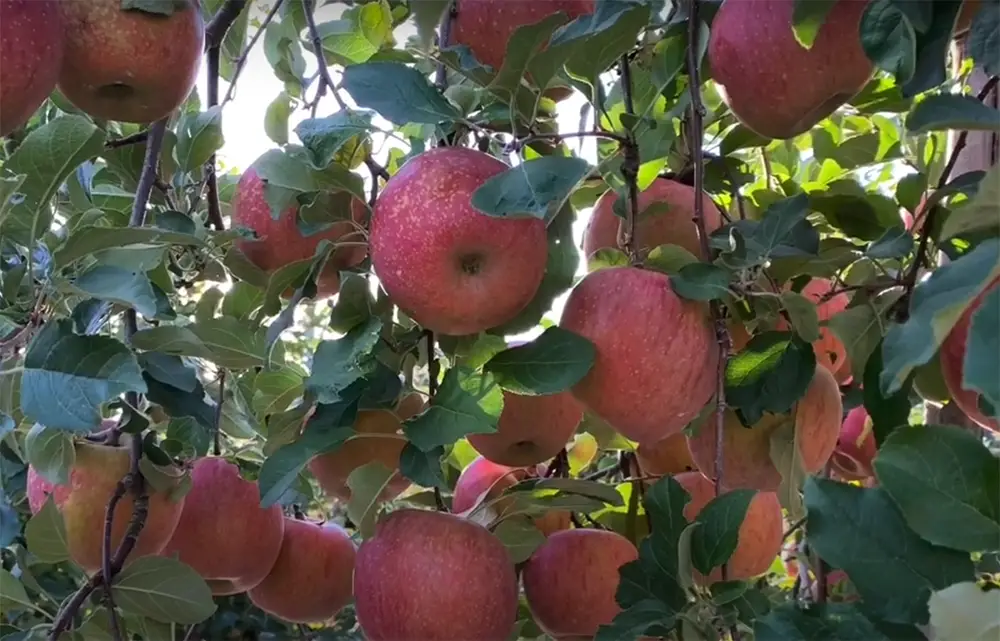
For optimal performance, the Fuji apple tree prefers full sun exposure and moist, well-drained soil. For irrigation, water the tree deeply and regularly during dry spells to meet its moisture needs throughout the season. Mulching helps retain moisture levels in the soil and prevent weeds from growing around it.
To enhance growth and provide essential nutrients, it is advisable to fertilize during the spring season. Additionally, regular pruning is crucial to maintain the desired shape and size of the tree, while also promoting optimal airflow and penetration of sunlight. For optimal results, prune the Fuji apple tree during late winter or early spring when it is dormant.
Thinning out fruits after flowering may be necessary to ensure that each fruit can reach its full size and ripeness. This helps promote a higher quality harvest since too many fruits can cause the individual fruits to be smaller and less sweet.
Reliance Peach (Prunus ‘Reliance’)
The Reliance peach is a great choice for Colorado gardeners looking to enjoy the sweet flavor of juicy peaches from their own backyard. This hardy tree species produces delicious, yellow-fleshed fruit that ripens in early summer.
For optimal growth and productivity, the Reliance peach tree requires full sun exposure and moist, well-drained soil. For irrigation, water the tree deeply and regularly during dry spells to meet its moisture needs throughout the season. Mulching helps retain moisture levels in the soil and prevent weeds from growing around it.
To enhance the growth of a Reliance peach tree, it is advisable to fertilize it during springtime. This provides a vital infusion of nutrients, ensuring healthy development. Additionally, regular pruning is essential to maintain the desired shape and size of the tree. By promoting better airflow and light penetration through pruning, optimal conditions for growth are created. For best results, prune the Reliance peach tree during late winter or early spring while it is dormant.
Santa Rosa Plum (Prunus salicina ‘Santa Rosa’)
The Santa Rosa plum is a great option for Colorado gardeners looking to enjoy the sweet flavor of juicy plums from their backyard. This hardy tree species produces delicious, purplish-red fruit that ripens in mid-summer.
For optimal growth and productivity, the Santa Rosa plum tree requires full sun exposure and moist, well-drained soil. For irrigation, water the tree deeply and regularly during dry spells to meet its moisture needs throughout the season. Mulching helps retain moisture levels in the soil and prevent weeds from growing around it.
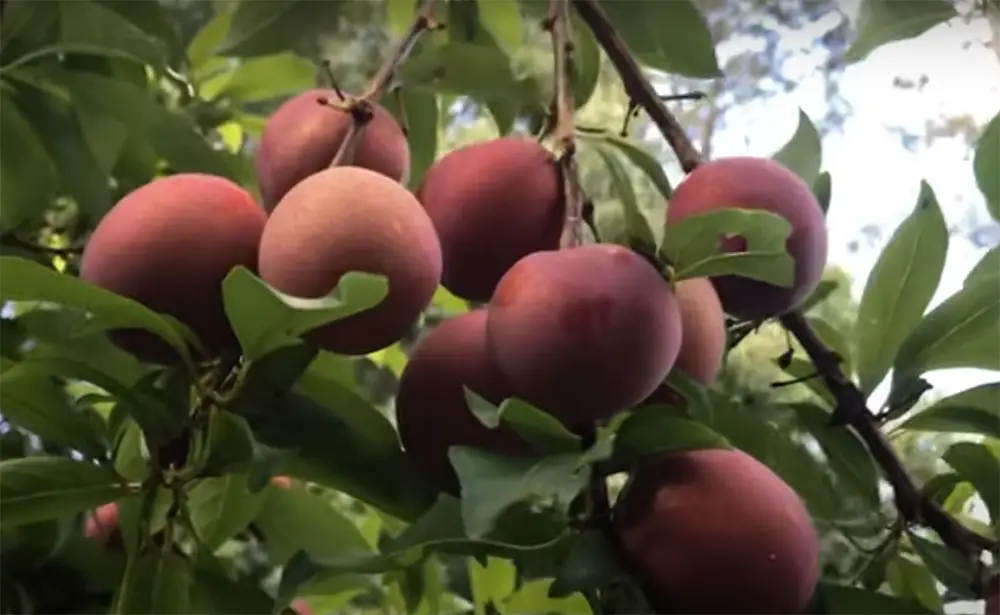
If you want to get a good yield, you should fertilize your Santa Rosa plum tree during springtime. This provides essential nutrients and promotes optimal growth. Additionally, regular pruning is necessary to maintain the desired shape and size of the tree while also promoting improved airflow and light penetration. For best results, prune the Santa Rosa plum tree during late winter or early spring when it is in a dormant state. Thinning out fruits after flowering may be necessary to ensure that each fruit can reach its full size and ripeness. This helps promote a higher quality harvest since too many fruits can cause the individual fruits to be smaller and less sweet.
Fantasia Nectarine (Prunus persica var. nucipersica ‘Fantasia’)
The Fantasia nectarine is an excellent choice for Colorado gardeners looking to enjoy the sweet flavor of juicy nectarines from their own backyard. This hardy tree species produces delicious, yellow-fleshed fruit that ripens in mid-summer.
For optimal growth and productivity, the Fantasia nectarine tree requires full sun exposure and moist, well-drained soil. For irrigation, water the tree deeply and regularly during dry spells to meet its moisture needs throughout the season. Mulching helps retain moisture levels in the soil and prevent weeds from growing around it.
To ensure optimal performance, it is important to fertilize your Fantasia nectarine tree during springtime with a balanced fertilizer. Additionally, regular pruning is necessary to maintain the desired shape and size of the tree while also promoting improved airflow and light penetration. For best results, prune the Fantasia nectarine tree during late winter or early spring when it is in a dormant state [2].
FAQ
What fruits are good to grow in Colorado?
Colorado is home to a variety of fruits, ranging from apples and peaches to cherries and raspberries. Apples, pears, plums and apricots are some of the most popular fruits for growing in Colorado due to their cold hardiness. Peaches and nectarines do well in certain areas of the state as long as they’re planted in sites with good drainage and have adequate protection from late-spring frosts.
Cherries, raspberries and blackberries are also popular choices to grow in Colorado. Other fruits that can be grown in the state include strawberries, blueberries, gooseberries, currants and grapes. With a careful selection of varieties suited for Colorado’s climate, it is possible to enjoy a wide variety of fruits from your own backyard.
Do apples grow well in Colorado?
Yes, apples are one of the most popular fruits for growing in Colorado due to their cold hardiness. Apples can be grown in a variety of climates and soil types, though they do best when planted in sites with good drainage and adequate protection from late-spring frosts. Popular apple varieties for growing in Colorado include Honeycrisp, Gala, Jonathan and Red Delicious. With proper care and maintenance, apples can be a delicious and rewarding addition to any Colorado garden!
Do berries grow well in Colorado?
Berries are a beloved choice for cultivation in Colorado, thriving in the state’s cold climate. Cherries, raspberries, and blackberries flourish due to their cold hardiness. Additionally, strawberries, blueberries, gooseberries, and currants can all be successfully grown in Colorado. Grapes, while requiring special consideration for soil, climate, and maintenance, are also a popular option. With proper care and the right variety selection tailored to Colorado’s climate, you can savor a delightful assortment of homegrown berries right from your own backyard!
Useful Video: Planting and Growing Fruit Trees in Colorado | Best Fruit Trees for CO | Fruit Tree Care Guide
Conclusion Paragraph
If you are a gardener in Colorado, you should know the best fruits to grow in Colorado’s climate. You should consider the short growing season, cold winters, and potential for drought when selecting varieties of fruits to grow. Apples, peaches, and pears are among the most popular fruits in Colorado due to their relatively low chill hours requirement and the wide range of varieties available. Many other types of fruit trees can also be grown successfully in a Colorado garden, including cherries, apricots, plums, and more. Once you are familiar with the basics of planting and caring for fruit trees in Colorado’s climate, you can enjoy the sweet rewards of homegrown fruits from your backyard!
References:
- https://treevitalize.com/high-altitude-fruit-trees-colorado/
- https://www.bathgardencenter.com/post/12-best-fruit-trees-for-colorado-front-range







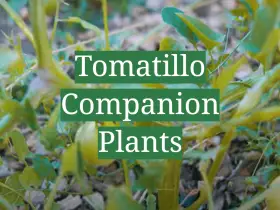


Leave a Reply
View Comments